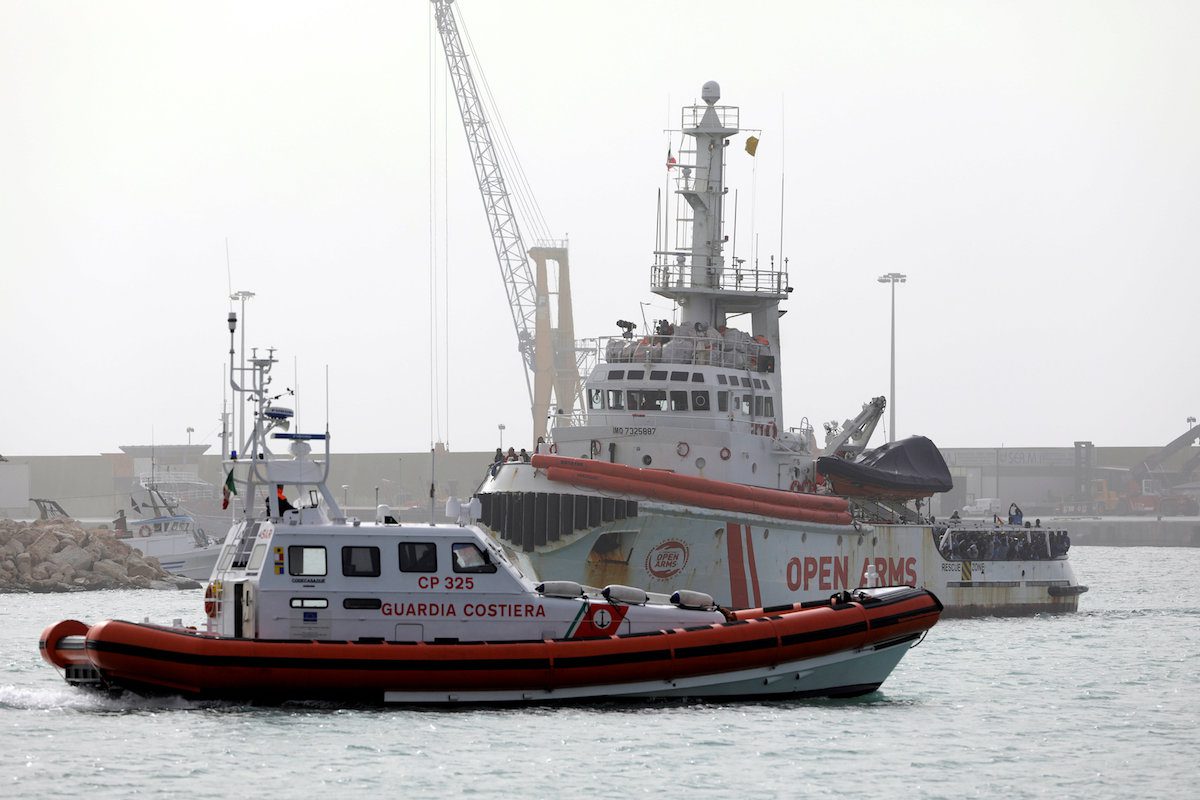Perla Del Caribe, the second of two LNG-fueled containerships being built by General Dynamics NASSCO shipyard in San Diego. Photo: NASSCO
A number of U.S. maritime industry stakeholders rallied together in a strong show of support for the Jones Act during an industry event in New York on Wednesday, sending a clear message to opponents that any attempt repeal the 95-year-old law is severely misguided and not in the best interest of the American people.
In his keynote presentation kicking off the third annual Tradewinds Jones Act Shipping Forum, U.S. Maritime Administrator Paul “Chip” Jaenichen offered what some are saying are his strongest words yet in support of the Jones Act, a cabotage law that requires goods shipped between U.S. ports be transported on U.S.-built, U.S.-owned and U.S.-crewed vessels.
Special focus was given to Hawaii and especially Puerto Rico, whose Governor, in the midst of an insurmountable debt crisis, is seeking a five-year waiver from the U.S. Government that would exempt the Commonwealth from the law.
“Pilgrims did not land at Plymouth Rock, Betsy Ross did not sew or design the United States flag and the Jones Act is not responsible for the cost of gasoline, the cost of groceries in Hawaii, the debt in Puerto Rico or snowy roads in New Jersey,” Jaenichen said in his keynote address.
“These are all tall tales. They are embellishments. They are outright falsehoods,” he said.
Perhaps most notable, Jaenichen was very clear that the Jones Act is not about protecting domestic trade, rather the reason the Jones Act exists today, above all else, is to support national defense.
Echoing Jaenichen’s comments, Tom Allegretti, Chairman of the American Maritime Partnership (AMP), addressed attendees about the overwhelming support for the Jones Act in Congress. In his remarks, Allegretti said that the strong support is due to the industry’s longstanding positive impact on national, economic and homeland security, noting that any attempt to include an amendment of the Jones Act in pending legislation is a “vote subtractor” that could hurt Congressional progress.
The Jones Act has been criticized this past month by opponents of the law who are actively working to tie the debt crisis in Puerto Rico to the maritime industry, and the Jones Act in particular. Allegretti went on to outline why any connection between the Jones Act and a debt relief package in Congress would actually hurt more than it helps.
“Some in Puerto Rico have suggested that a Jones Act exemption be included in the legislative package under the erroneous theory that the Jones Act is bad for Puerto Rico. But here’s the kicker: If Congress did that – include an anti-Jones Act amendment in the package – the chances of the overall package getting enacted into law would diminish. That’s because the presence of an anti-Jones Act amendment would reduce or subtract the number of Members of Congress who would vote for the overall bill. So Puerto Ricans would be undermining – and maybe even sabotaging – their own assistance package by including an anti-Jones Act amendment in it,” said Allegretti.
Congressional support was apparent earlier this year when Senator John McCain filed a Senate floor amendment to repeal the Jones Act, which was overwhelmingly disputed by Members in both Chambers of Congress. “Ultimately, several weeks later, facing almost certain defeat, [Sen. McCain] withdrew his amendment and did not offer it. We believe his amendment would have failed overwhelmingly. Even Sen. McCain jokingly admitted that his strategy for repealing the Jones Act was to ‘pray to the patron saint of lost causes.’ In other words, there is no appetite in Congress to change the Jones Act,” said Allegretti.
In fact, support in Congress for the Jones Act couldn’t be any stronger, according to the AMP. Last December, Congress enacted the strongest endorsement of the Jones Act in history in a resolutions included in the National Defense Authorization Act of 2014.
While hosting Wednesday’s “Innovation and Opportunities” panel focusing on prospects in the Jones Act shipbuilding market, Shipbuilders Council of America (SCA) President Matthew Paxton hailed the innovation in the U.S. domestic shipbuilding and repair industry and noted the industrial base as a crucial element of America’s national, homeland and economic security.
Kicking off the panel, Paxton talked about current innovations within the industry, saying, “This is an exciting time for the nation’s shipbuilding industry because new LNG-powered vessels under construction are on the cutting edge of maritime innovation. U.S. shipbuilders are driving innovation and investing right here in America with world leading LNG technology.”
Paxton of course was referring to the recent launch of the world’s first (and second) LNG-powered containerships being built for Tote Maritime at the NASSCO shipyard in San Diego.
According to the American Maritime Partnership, the domestic maritime industry is made up of more than 40,000 American vessels and sustains nearly 500,000 American jobs, $28.95 billion in labor compensation, and more than $92.5 billion in annual economic output. In addition, for every one shipyard job, five more are created and the industry contributes over $6.4 billion in GDP to the U.S. economy every year, according to MARAD.
If there was one take away from the event it was this: the Jones Act as we know it is not going anywhere.
Unlock Exclusive Insights Today!
Join the gCaptain Club for curated content, insider opinions, and vibrant community discussions.

 Join The Club
Join The Club











